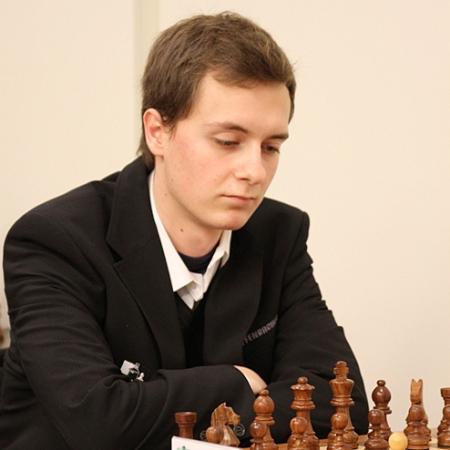
Grandmaster Bindrich, Accused of Cheating, Sues German Chess Federation For € 68,000
Falko Bindrich, a 23-year-old grandmaster from Germany, has sued the German Chess Federation for an amount of € 68,000 ($94,336). This was mentioned in a monthly PDF magazine of the federation and picked up by the chess website Schach Welt. Bindrich was suspected of cheating in October 2012, but later his two-year ban from play was cancelled.
Falko Bindrich | Photo courtesy of the Schachbundesliga
In October 2012 Falko Bindrich, who had just turned 22 at the time, was suspected of cheating during the first Bundesliga weekend of the season. When he visited the toilet during his game on Sunday, the arbiter asked him whether he had his smartphone with him. Mr Bindrich answered positively, but refused to show his phone whereupon the arbiter decided to declare the game lost for him, based on a new regulation:
“(...) During their game the players may not have or gain access to mobile phones, computers and other electronic devices without the arbiter's permission. In case of clear suspected use of tools mentioned above, upon request of the arbiter the players are obliged to hand over these devices for inspection. In case of clear suspected use of tools mentioned above, upon request of the arbiter the players are obliged to have their clothes, bags or other pieces of luggage inspected. When a player breaches these obligations, the arbiter may take measures in accordance with Clause. 8.1 of the tournament rules.”
A few days later, in a five-page document, Mr Bindrich rejected the suspicion of fraud. He claimed not to be using the toilet more often than is normal, and he explained his decision to not show his phone by saying:
“First and foremost, I see it as a direct invasion of my privacy. I cannot just allow anyone access to my phone. It contains my private data (very private images and messages) and sensitive business data. I should protect this.”
Mr Bindrich also wondered why he “needed to prove that he's innocent”, and also rejected the arbiter's request because he “did not know who accused him of cheating.”
In January 2013 the German Chess Federation banned Mr Bindrich from play for two years. Like in other sports, where an athlete is considered guilty when not participating in a doping test, the chess player was punished for not cooperating.
However, in May 2013 the arbitration court of the Federation cancelled the ban, stating it was issued without legal basis.
Now, almost a year later, the story continues. Mr Bindrich has decided to sue the German Chess Federation for an amount of € 68,000 ($94,336). This was mentioned in a monthly PDF magazine of the federation (in PDF here) and picked up by the chess website Schach Welt.
Olaf Steffens, the author of the Schach Welt article, rightly notes that the amount € 68,000 seems rather high, taking into account the average income of an average grandmaster over a period of four months. No doubt Mr Bindrich is also claiming a damage of reputation.
The chess world has seen several incidents of (suspected) cheating in recent years. In July 2012 Sebastien Feller, Arnaud Hauchard and Cyril Marzolo were suspended by the French Chess Fededation for cheating at the Chess Olympiad in Khanty-Mansiysk in September 2010. The decision was later confirmed by the FIDE Ethics Commission.
In December 2013 Borislav Ivanov was suspended for the second time by the Bulgarian Chess Federation. Although there was no clear proof of cheating, the indirect evidence seemed overwhelming: many of his games showed a very high of play, he refused to take off his shoes when asked, and at a recent tournament in Spain the organizers found a device with wires on his back, but Ivanov refused to show it and instead left the tournament even though he was topping the standings at that point.


